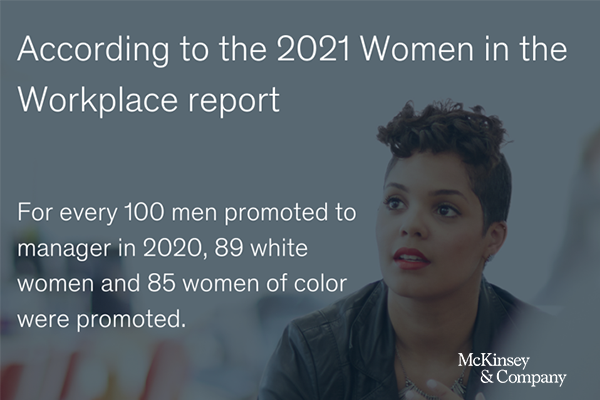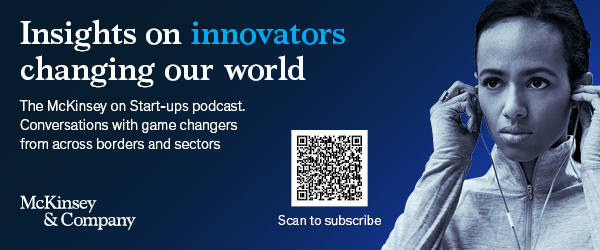|
Good Morning,
Thanks again for spending your Saturday morning with us. As usual, it’s Jon Kelly, the co-founder and editor-in-chief of Puck, our new media company focused on the nexus of Wall Street, Washington, Silicon Valley, and Hollywood. On behalf of our amazing team of journalists—Matthew Belloni, Julia Ioffe, Baratunde Thurston, Theodore Schleifer, Tina Nguyen, William D. Cohan, Peter Hamby, and Dylan Byers—thanks for your ongoing support. We hope that you’re enjoying what you’re reading (and listening to).
Knowledge Partner
Herewith, some pieces that you might have missed during this electrifying week at Puck. And stick around, below the fold, for some more insight into what’s really going on behind the scenes.
HOLLYWOOD: Matt Belloni crunches the numbers to figure out if the new, thrice-delayed Bond film can break even.
WASHINGTON: Will Javanka ride shotgun in Trump’s hypothetical ‘24 race? Tina Nguyen reads the Mar-a-Lago tea leaves.
SILICON VALLEY: Dylan Byers addresses the latest front in the battle between Facebook and the media.
WALL STREET: Bill Cohan gets the inside story on Wall Street’s fears about what’s really going on in China.
KNOWLEDGE PARTNER Women in the workplace report 2021 For the seventh year running, in conjunction with LeanIn.Org, McKinsey recently conducted the largest study of women in corporate America. For this year’s report, more than 65,000 people from 423 participating organizations were surveyed on their workplace experiences.
In 2020 women made gains in representation across all levels of the corporate pipeline. However, men still outnumber women significantly at the first step up the ‘rung’ to manager level, meaning that the promotion pipeline of women to higher levels continues to be far fewer. This is particularly evident amongst women of color, whose representation between entry level and the c-suite drops off by more than 75 percent.
The stress of the pandemic has taken its toll, with 42 percent of women versus 35 percent of men reporting being burned out. Despite this, women have been doing more to support their teams through allyship and in advancing diversity, equity, and inclusion efforts at work. These are critical efforts that often go unrecognized and unrewarded by most companies. To drive change, the report recommends companies taking bold steps to recognize and reward the women leaders that are driving progress and do the deep cultural work required to create a workplace where all women feel valued.
“I want to write to unlock the traffic jam in everybody’s head,” John Updike once noted years ago, explaining his own processes and motivations as a novelist and cultural chronicler. I’m hardly a quotesmith, or a literary savant, but I think of that line often as we build Puck. Updike, after all, entered the literary pantheon by illuminating the ineluctable human foibles in our character, our art, and everyday life—often, if not always, with seemingly simple insights that effortlessly untangled the complexity of it all.
At Puck, our incredible team of journalists endeavor to do the same when it comes to explicating the traffic jams that define the way we live now. And often, if not always, they can be explained away by unsnarling the relentless gyrations of Wall Street, Washington, Silicon Valley, and Hollywood as these centers of gravity continue to undergo profound changes.
We are living through something, although it is often hard to pinpoint the precise change amid our economy’s ongoing digital transformation. It’s a period of passage, perhaps amplified by the ways the pandemic has altered our lives and thrown up for debate so many traditions and norms. And as our incredible team of journalists chronicles the four power corridors of our culture, it’s clear that we see signs of the change everywhere. This week, in particular, the manifestations were hard to miss.
In “The Unknown Unknowns Have Increased”: Wall Street Ponders the China Conundrum, Bill Cohan drilled down on perhaps the most pressing topic in finance: what in the world to do as China’s President Xi continues his crackdown on his tech sector, among other industries. Lingering under the surface of Wall Street’s sentiment is an undeniable reality, and a rather realpolitik one.
The rise of China’s economy is insurmountable; it’s buying power is unprecedented; it’s the lynchpin of the global supply chain and our largest foreign creditor. Whereas Wall Street honchos might advocate imposing sanctions on a lesser foreign power, the prevailing view among thought leaders in the industry is that we need to play it safe with China as the country works through its own (often brutal) economic and social growing pains. “Decoupling” from its economic sphere—the euphemism for imposing penalties on account of its un-democratic behavior—would usher in a world of financially inconceivable possibilities, most of them likely to penalize U.S. companies that rely on the Chinese market to either make their goods or consume them. American culture is accustomed to flexing its muscle. But here, according to the predominant Wall Street view, we need to wait and see. Politically, we are indeed in the midst of the wait-and-see era. Julia Ioffe reported this week on how some of this period harkens back to Washington’s traditional pre-Trump cadence. But Tina Nguyen also revealed how so much of our political firmament remains frozen until Trump sends his smoke signal from Mar-a-Lago about his 2024 intentions. And headspinningly, some of the calculation there may rest upon whether the supposedly “stabilizing” force of Javanka (a.k.a. “The interns,” according to Stephanie Grisham’s new book) chips in to recruit some operational order around the madness of his post-presidency and potential future pre-campaign. Trump may be hanging with the My Pillow Guy and a bunch of his ridiculous Stop-the-Steal MAGA homeboys, all suggesting he’s out of the game. But he has nevertheless become the Hamlet of our politics, and there will be gridlock till he reveals his intentions. Is he playing Vulcan chess? Hardly, but such is the nature of our times.
KNOWLEDGE PARTNER
Part of the traffic jam results from the fact that we now have some idea of what the next decade is going to look like, but we don’t quite know how we’re going to get there. I was reminded of that fact as I read Matt Belloni’s fantastic piece on this weekend’s new Bond film, No Time to Die. Will the thrice-delayed film break even despite the Covid-based precautions placed upon any theatrical release these days? That’s not the point, Matt writes. What we know for sure is that in our increasingly video-on-demand economy, this movie may be one of the last theatrical experiences of its kind. Period.
Meanwhile the tech industry, the bastion of innovation, is also squirming its way through this moment. Earlier this week, Alex Kantrowitz revealed the deeper issue behind Facebook’s attempts to create an Instagram product for children. Is the project malevolent and insidious? Perhaps. But Alex notes perspicaciously that Zuckerberg knows better than most that Facebook, which became a near-trillion-dollar market-cap company in a generation, could go away just as quickly, especially given the increasing regulatory scrutiny in Washington, which has tempered its M&A deal opportunities. Like Google and Amazon, Facebook can’t really buy its way to growth; instead, it needs to create its future from within while its flagship application loses steam in the U.S. market. Zuckerberg’s plight reminds me of another favorite Updike quote: “How can you respect the world when you see it’s being run by a bunch of kids turned old.”
If you read one piece this week, however, I’d surely suggest the first entry in Baratunde Thurston’s brave and insightful series, After the Tide, about the ways in which our culture has changed, is changing, and yet still remains in many ways paralyzed, after the murder of George Floyd. It is essential reading for understanding the journey that our culture is on, perhaps even articulating the promise of what’s on the other side.
Thanks for supporting Puck. Have a great weekend.
Thanks, Jon
|
-
Join Puck
Directly Supporting Authors
A new economic model in which writers are also partners in the business.
Personalized Subscriptions
Customize your settings to receive the newsletters you want from the authors you follow.
Stay in the Know
Connect directly with Puck talent through email and exclusive events.



















